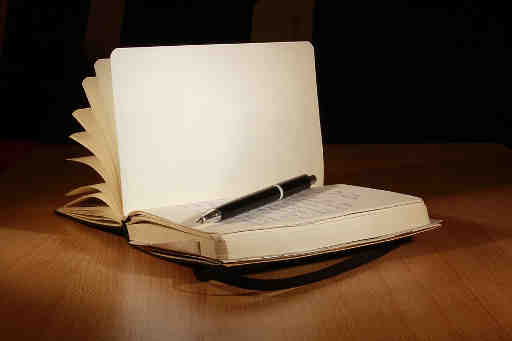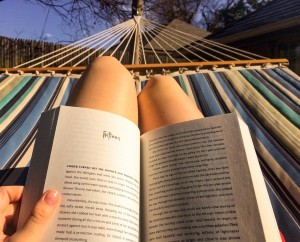Reading is an activity fraught with choices and distractions. You know how it is when you walk to a book shelf at a library or a book store. Too many books call out to you and you are paralysed. Reading online is more difficult. Apart from millions of articles on a single topic, articles often have a rabbit-hole of hyperlinks leading to other articles or even other topics. In the post, Get more out of your reading, we explained how to avoid distractions and focus on what you are reading. We even suggested that you discard all content that isn’t relevant to your life. We gave you some good habits to follow to keep your reading fun.
What if you can fine-tune your reading even more, so that you get the best results from your sessions? What if you walk into a library and know exactly where to start and how to proceed in your next few visits? What if you set reading goals for your upcoming year? What if you set seasonal topics that you will stick to? What if you are more proactive with your reading, using techniques like note-taking and deliberately practising the skills introduced by your books. This post takes your reading experience to a new level where you will start mastering a few skills that you have always wanted to learn.
Materials to read
This post assumes that you are looking for a specific skill (e.g. stock trading, Spanish, C++, writing a report), information (how to travel around Africa, your ancestry, technological evolution of computers) or lessons from a person’s life (Sam Walton, Steve Jobs, Mahatma Gandhi). If it is information you seek, we believe it is for something important in your life and its goals.
We suggest that you read non-fiction books and autobiographies in order to get yourself closer to your goals. Fiction stories which actually explain some non-fiction concept in the form of a story are also recommended. Good examples are Eliyahoo Goldratt (Amazon.in|Amazon.com) and Michael Gerber (Amazon.in|Amazon.com), who explain industrial strategies and entrepreneurship in the form of stories. Online sources worth including in your learning tools list are: TED talks, Youtube tutorials, tutorial blogs, Coursera, Udemy and Skillshare.
We have suggested that you avoid passive reading fiction stories such as novels, in the article How to invest 30 days in yourself. This may seem controversial if you love reading fiction novels, but please stick with us. In the Internet world, please avoid Facebook, Twitter, Quora and Stackoverflow. Facebook and Twitter are rife with distractions. Quora and Stackoverflow answers are superficial and they have nothing to do with deeply learning any subject.
Determining your topics
One easy way to know what topics or subjects you should cover comes from your new resolutions. Your goals may list, “I want to lose 10 kilos this year” or “I want to play ‘Sweet Child of Mine’ on my guitar”. Others may want to start a new business, get better at sales, learn how to score a free kick like Ronaldo or learn German. Don’t have any new year goals? That’s okay. Spend some time tonight thinking about what you would like to achieve this year. Set some new goals, knowing that this time you are going to take action.
My focus this year is on improving my productivity so that I can complete 3 major activities every day giving 3 hours to each activity. I want to build systems in my life that perform repetitive tasks faster. My wife Priya wants to be a stock trader and is zeroing in on online tutorials, courses and physical books on how stocks work and how to analyse them to make better choices. Both of us are co-authoring a book on our trip India 360.
Determining your path to knowledge
With your goals set, you can work on a path towards your goals. Goals can be divided into monthly targets, which means that you should know more about your subject by the end of next month than what you know this month. If it is a topic that you are reasonably competent in, you will be able to determine your monthly steps. However if it is a totally new subject, you may need to read some short articles about it to know what you need to learn every month to get better.
For my productivity goal, I need to build better habits that make the easier over time and create systems that will do tasks for me automatically. I need to learn about habit formation and creating automated systems. Priya needs to learn how to analyse a stock by reading annual reports. She also needs to learn how to spot trends in the markets and which numbers she should be seriously looking at. She also needs to learn about option trading. To write a travel book, we should learn how to describe places, people and events. We should learn how to write in a way that creates visuals in people’s minds.
Determining your materials
Once you have concretely mapped out your monthly steps, you should now look for learning sources which help you get there. You should ruthlessly look for those topics alone. You should dismiss any other attractive topic that distracts you, come what may. You should come back to those sources when you are ready for those topics. It is a hard, sometimes a heart-breaking process to ignore a topic that you really love, but you have chosen your goals and you need to tap the relevant tools that take you there.
The books, “Hooked” (Amazon.in|Amazon.com), “Nudge” (Amazon.in|Amazon.com), “The power of habit” (Amazon.in|Amazon.com), “Smarter, faster, better” (Amazon.in|Amazon.com) and “Work the system” (Amazon.in|Amazon.com) are tailor-made for my productivity goal, which hinges on habits and systems. Priya has taken to an online course named Zerodha Varsity to learn about technical stock analysis, fundamental stock analysis and options trading. She has also noted down some books about stock investing from Amazon. Our travel book goal can be guided by Jules Verne’s Around The World In 80 Days (Amazon.in|Amazon.com). Then there are travel writers like Bill Bryson (humour in travel) (Amazon.in|Amazon.com) and Michael Palin (fact files and trip plans) (Amazon.in|Amazon.com). We also have a few guides from Lonely Planet as our guide posts. William Zinsser’s On Writing Well (Amazon.in|Amazon.com) is a gold standard when it comes to writing with clarity and purpose.
However, at a book fair at Chennai recently, we found many books on topics that we love. There were books on building a better health, building a business out of an app and the like. However, we had committed to our goals: productivity, stock trading and travel book writing. We couldn’t find any books on those topics, so we walked out. Empty handed. From a book fair, where 90000 books were on sale! But none of them relevant to our year’s learning goals.
Where to get the materials
Your best source is a good library in your vicinity where you can look for books that you have short-listed. A library with a good and responsive librarian works wonders for your reading goals.
On the Internet, Udemy, Coursera and Skillshare are excellent sources for video tutorials. You can search Google for ‘tutorials’ or ‘lessons’ for your share. E-books can be perused on online libraries such as Kindle Unlimited or Safari Online.
Of course, you can always purchase books either at a book store or online. Personally, I like to borrow a book and read it for a while before I decide that the book is for keeps.
Is reading enough?
Reading is a passive activity where the words simply go into your mind. The moment you walk away from the book, blog article or video, your mind may forget what you just learnt. There are two ways to make your learning active.

- Write notes from the book and a book summary. Writing the words from the book from your own understanding crystallises the subject in your mind. A summary of the entire book in four to five paragraphs also makes a good reference that you can peruse any time later for a quick skim. Our Book summaries section is a good example of this idea in practice.
- Practise the learning within 72 hours of learning it. This instruction comes from author Michael Masterson in his book, The Pledge. He suggests noting down important and unique ideas from a book and giving the principle a try within the next 3 days. Learning from experience is much more powerful than learning from words. Subjects like guitar learning and skating definitely need physical practice. The 3-day guideline is just that — a guideline. If you have just read a book on Europe travel, a 3-day window is not practical. But make sure that you read a book on Europe travel only in the year that you are travelling there. A good time would be after you get your Visa and purchase the airline tickets.
Taking a leaf out of this tip, Priya has a demat account using which she buys stocks to try her knowledge on stocks. I am building my own systems and habits, retaining the ones that work and discarding the ones that don’t. We have written a few chapters of our travel book. We constantly review what we have written and stop to include good ideas from other travel books.
What about good ol’ casual reading?
Should I spend 7 days a week, simply reading for goals. What happened to good old reading for no gain, just for casual food for thought? The way we would do on a hammock at a beach?

Fear not. In the post, Theme your days to get more done, I advocated setting aside one day every week for whimsical fun. No plans, no goals, nothing. Just whatever your heart tells you. One such day applies to reading too. Reading without a plan allows you to discover ideas you may love. It also gives you fresh reading goals once you are done with the current ones. Just for one day, let yourself read a fiction novel, the newspaper or even a fashion magazine. Browse through your Facebook, Twitter and Instagram feeds. Read posters on walls and even billboards on hoardings. Just follow your heart.
Conclusion
Reading with distraction all around you can be stressful. Avoid reading what the entire world is reading can lead to FOMO (Fear Of Missing Out). But look at the bright side. A reading plan with relevance to your goals will help you achieve your targets one skill and one bit of information at a time.

Cameron Herold, author of ‘Double Double’ also talks about conscious and purposeful learning rather than consuming info not immediately relevant to our lives. Learning with a purpose 🙂
That’s true. When we declutter and focus, it really sharpens our learning.